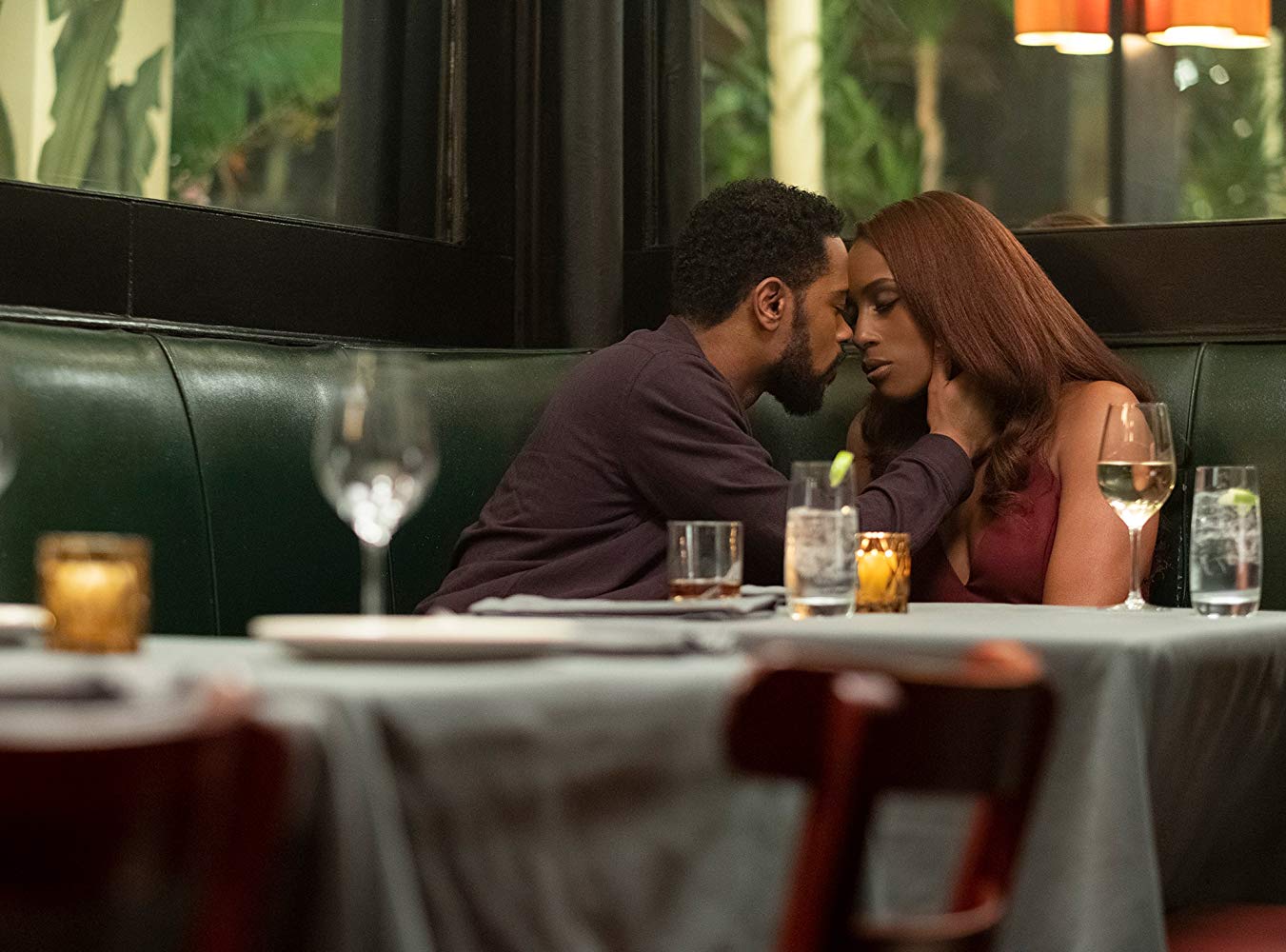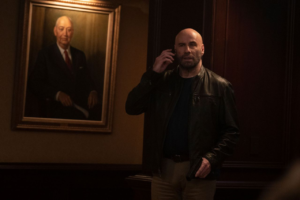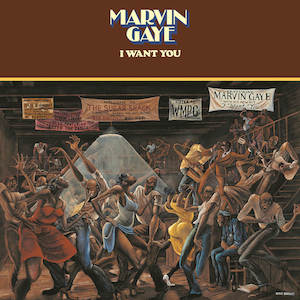Valentine’s Day weekend wouldn’t be complete without a new love story arriving in theaters for couples to enjoy, as is Universal Pictures, The Photograph. Written and directed by Stella Meghie, The Photograph opens in 1989 with photographer Christina (Chanté Adams) giving an interview. We are then transitioned to the present day, with journalist Michael (Lakeith Stanfield) who is on assignment to write about fishermen in the Louisiana Gulf.
One of Michael’s first interviews is with Isaac Jefferson (Rob Morgan). During their interview, Michael notices a photo of Christina and asks Isaac who she is. Meanwhile, back in New York, Christina’s adult daughter, Mae (Issa Rae), is getting Christiana’s estate in order after her death. Through a series of events, Mae and Michael end up crossing paths, and begin an unexpected romance of their own.
At its core, The Photograph may come off to some as a black version of the classic film, The Notebook. While there are some similarities, primarily the crosscutting of love stories between a young Christina /Isaac (Y’lan Noel) and a modern day Mae/Michael, The Photograph is so much more. Granted, we’ve seen black love on screen before, but the strength of The Photograph is more in its portrayal of its characters.
Stella Meghie’s script avoids stereotypes of its principal cast and instead, portrays them as real, everyday people. I could see numerous friends in the characters of Michael, Isaac, Mae and even Christina. Mark Schwartzbard’s cinematography captures the beauty of black skin with ease and there’s never an actual ugly moment in the film. All of the cast looks great on screen, and for that reason alone I recommend seeing this film.
In terms of casting, Lakeith Stanfield is without a doubt, one of the most talented actors working in film today. This is the third film that Stanfield has had a prominent role in the last three months and every portrayal has been different. As Michael, he never comes off as arrogant or unlikeable, but more as a man chasing his journalistic dreams and just looking to have fun along the way. In the roles of Isaac, Rob Morgan and Y’lan Noel both bring the essence of a southern gentleman to life with ease.
As for the women in the film, Issa Rae continues to shine. While I have yet to watch Issa’s show Insecure, I was very impressed with her dramatic turn in last year’s The Hate U Give. As Mae, Issa provides us with a lovely portrayal of a woman who’s skeptical of love, due to her own issues from childhood. The script never turns Mae into an aggressive woman, who thinks she knows it all, which I commend.
I must also point out the lovely soundtrack in the film. Growing up in the eighties and nineties, one of the best things about a film aimed at black audiences for me, was the soundtrack. While Luther Vandross and Karyn White are featured in the background of the film, it’s Robert Glasper’s score that brings the film home. With a lush jazz score, Glasper needs to score other films because his work here is amazing.
As The Photograph is a romantic film, the chemistry between our leads is sure to grant discussion. Personally for me, I found their chemistry to be genuine and reminds me of a simpler dating time. During their date scene, there was never a point where either character picked up a smart phone. Instead, we see a man and a woman on a date, just enjoying each other in the moment. The character of Michael and Mae would fit right at home in some of the black romance films of the nineties.
As much as I enjoyed the film, there were two small issues I had with The Photograph. The first was the lack of screen time for Lil Rel Howery and Teyonah Parris, who portray Michael’s brother and sister in law. The duo had great chemistry as a married couple, and their scenes with Mae provide some of the film’s funniest moments. My second issue was with the character of Andy (Kelvin Harrison Jr.) Similar to Stanfield, Harrison is having a hell of a year with his acting. Following great work in last year’s Luce and Waves, he deserves better than what The Photograph gives him.
The Photograph is an excellent look at the beauty of black love in the modern day. With authentic storytelling, no political agenda and subtle humor, it’s one of the best made films of 2020 for me thus far.
Final Grade A+






